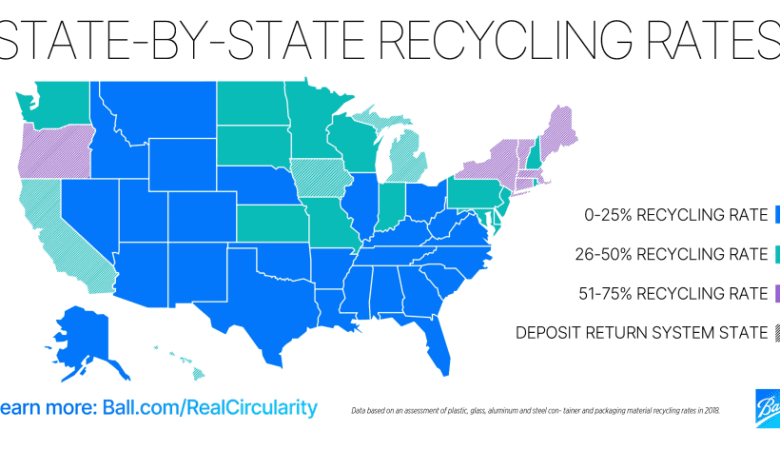Illegal dumping, the illegal disposal of waste in places not intended as waste facilities, has been a significant issue for both environmental and social health in Oklahoma, in cities like Tulsa and Oklahoma City.
Illegal dumping remains a problem for the state’s ecosystems, public health and community aesthetic, despite ongoing efforts to combat the issue and OK dumpster rental offers. Understanding the causes and effects of illegal dumping and potential solutions is important for addressing this issue that concerns all residents of Oklahoma.
Reasons Behind Illegal Dumping in Oklahoma
Most of the factors that lead to illegal dumping relate to economic or convenience-related incentives. For some people and businesses, it can be expensive or impractical to take waste to appropriate facilities. Landfills charge tipping fees, and recycling requires the labor-intensive task of sorting materials before they can be recycled. Consequently, individuals can end up dumping trash on rural roadways, vacant fields, or anywhere in nature.
A lack of access to waste disposal facilities in some areas of Oklahoma, especially in rural settings, is another contributing factor.
Residents also must deal with potential logistical issues in disposing of larger or bulkier items such as furniture, appliances or construction debris without nearby landfills or transfer stations. Moreover, unaware of how and where to dispose the waste and the less resources available to use make the issue worse.
Impact on Environment and Health
It is important to understand the impact illegal dumping has on our environment and public health. Improper disposal of waste in unsanctioned areas could potentially pollute the soil and waterways. Hazardous chemicals, including motor oil, batteries and chemicals, can seep into the soil and waterways and contaminate drinking water supplies and aquatic ecosystems.
The presence of waste in nature may also provide breeding grounds for disease-carrying organisms and pests. Tires, for instance, accumulate standing water and therefore are prime breeding grounds for mosquitoes, which can carry diseases like West Nile virus. Aside from that, rodents and vermin attracted to illegal dump sites also bring about the spread of diseases.
And the ugly sight of illegal debris mars the natural wonders that Oklahoma has to offer. This can not only negatively impact the quality of life for the residents, it can also dissuade tourism and economic growth in the impacted regions.
Economic Costs
It is estimated that responding to illegal dumping costs about $350 million to taxpayers across the country, excluding dumpster rental services.
Waste disposal is an essential aspect of maintaining a healthy environment, and protecting the public from the harmful effects of such illegal activity will cause strain on local government and municipalities to clear dump sites, enforce anti-dumping laws, and spread awareness about proper waste disposal. These expenditures can become a fiscal burden, diverting funds from other much needed services such as education and infrastructure.
Taxpayers often bear the cost of cleaning up illegal dumping sites in Oklahoma. Cleanup requires labor, equipment and transportation, all of which can be expensive. Moreover, illegal dumping can cause long-term environmental damage that may involve costly restoration projects.
Supporting Work to Stop Illegal Dumping
Oklahoma has taken a number of steps to combat illegal dumping. The state’s Department of Environmental Quality (DEQ) collaborates with local governments, community organizations and law enforcement agencies to address the issue. Conducting public awareness campaigns to educate residents about environmental and legal ramifications of illegal dumping and encourage proper disposal methods.
Legislation is also an important part of deterrence. Illegal dumping in Oklahoma has serious consequences — fines, community service, and even jail time for repeat offenders. The enforcement of these laws is key to holding those behind these practices accountable and preventing others from following suit.
Community-driven initiatives have also been shown to be effective in fighting illegal dumping. You enable residents to become proactive about sanitation and safety through volunteer cleanups, neighborhood watch groups and drop-off points for bulky or harmful items.
Moving Forward with Better Waste Management
But progress has been a slow, steady slog, and illegal dumping is still a pervasive problem in Oklahoma. A multifaceted approach is needed to solve the problem.
It is necessary to expand access to disposal facilities so that world residents, especially in rural areas, do not have to spend centuries balancing social and global logistics. More public education campaigns — funded ideally by clean-up authorities rather than built into taxes — can help raise awareness about the environmental and health risks of illegal dumping.
Employing more powerful enforcement tools, such as surveillance cameras, and notifying apps can increase deterrent and effectiveness in monitoring illegal dumping sites. It will also be necessary to bring together state agencies, local governments, businesses, community organizations, and others to find sustainable answers.
Illegal dumping in Oklahoma is a serious problem that needs to be addressed now. If these measures are taken to eliminate the causes, mitigate the impacts and devise comprehensive strategies, the state can protect its natural resources, safeguard public health and its cleaner heaven.






